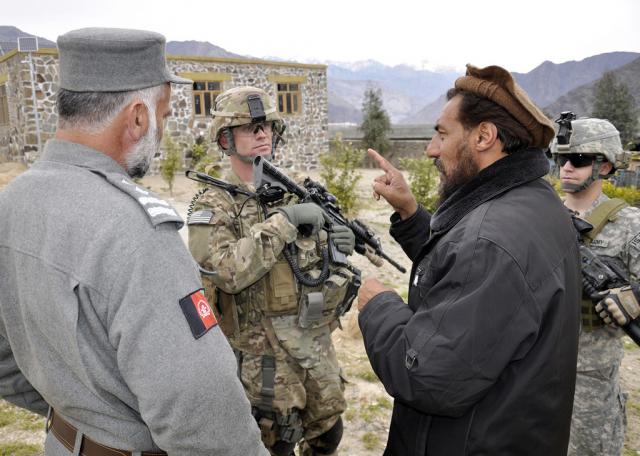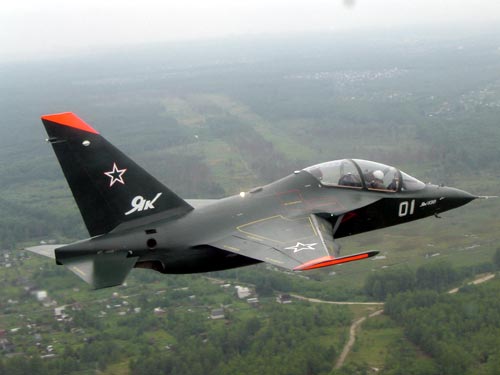Far from home, poorly paid and discriminated against, Mushtaq and Sefadullah are among thousands of Afghans who are deserting the army in a worrying trend two years before NATO troops leave.
It is not that they have joined the Taliban. Like many, they simply got fed up with life in the army, fighting a war. So they went back to the eastern city of Jalalabad, where they both have blossomed in new jobs.
Mushtaq, which is a fake name, says he served in the relatively peaceful western province of Herat but was discriminated against for coming from the same ethnic group as the majority of the Taliban.
A Pashtun from Tora Bora — where Al-Qaeda founder Osama bin Laden hid after the 2001 invasion of Afghanistan — Mushtaq said his officers treated him like a Talib.
“Our commander was Tajik. All the Pashtuns were always blamed. So I left,” the 23-year-old told AFP. Today he works at an English language and information centre.
“At that time, I had a good salary — 11,000 Afghanis ($220). Now I get only 4,000 but I’m happy. I’m free and I learn English.”
General Olivier de Bavinchove, number three commander in the US-led International Security Assistance Force (ISAF), says around 50,000 soldiers, or around 26 percent, of the 190,000-strong Afghan army desert the force each year.
General Zahir Azimi, spokesman for the Afghan defence ministry, says the desertion rate is significantly lower but still 10 to 15 percent. In the United States, the desertion rate is 0.3 percent.
“This is a normal percentage in a warring situation in Afghanistan. In other countries they are not in war so they don’t have a high rate,” Azimi told AFP.
“The desertion is seasonal. Some seasons and months are vacation seasons in which we have desertion, some months we don’t have any.”
Desertion is also a problem in the police, if at the lower level of around eight percent a year, according to ISAF.
Bavinchove says there is so far little evidence that the soldiers are deserting the army to join the Taliban, but believes the trend poses a major risk to a military and a state dependent on Western aid to stay afloat.
“For the moment, we haven’t seen these boys who leave the army early join the ranks of the insurgency…. It does happen and it can still occur, but it is altogether marginal,” said Bavinchove.
“On the other hand, this haemorrhage is a mortal risk for a country and an institution which will encounter considerable financial difficulties,” he added, saying that desertions cost $850 million of the $4.1 billion stumped up by the international community each year to finance the army.
Waheed Mujda, a political analyst and former member of the 1996-2001 Taliban regime, agrees that most of those who desert go back home to their villages.
Sefadullah, 24, says he was fed up with being far from his wife and three children, one of whom has since died. He is now a driver and says he has no regrets.
“So I ran away. I got my salary, and I went back to Jalalabad,” he said. “In my group we were supposed to be 75 people but only 13 were actually present…. They would only come to get their salary and then they would go back home.”
Neither of the former soldiers fears a court martial. “Lots of other soldiers deserted before me, the army doesn’t look for them,” says Mushtaq, who nevertheless refuses to give his real name.
The Afghan security forces, which did not exist until the Taliban fell in 2001, have been built up quickly and still lack professionalism.
According to a recent Pentagon report, Afghans have “begun to assume the lead for security” in areas home to roughly 76 percent of the population.
Between March and September, the United States decreased its military forces in Afghanistan by 25 percent. There are now about 68,000 US troops in the country.
Bavinchove says the Afghan army has to shake off a “culture of seasonal fighting”, which Azimi attributes mostly to soldiers leaving temporarily to visit their families during harvest.
He says that better rotation of units and loyalty bonuses could be introduced to help stem the flow of desertions before the army goes it alone in 2014.
Looking ahead, with presidential elections due in 2014 and the perennial fear of ethnic unrest, the general concedes that it would be a mistake to have too many trained fighters standing idle.
“There is a risk. If this country enters a new period of instability then this large number of idle fighters, still young and easily influenced, will take the opportunity to engage in chaos,” Bavinchove said.











